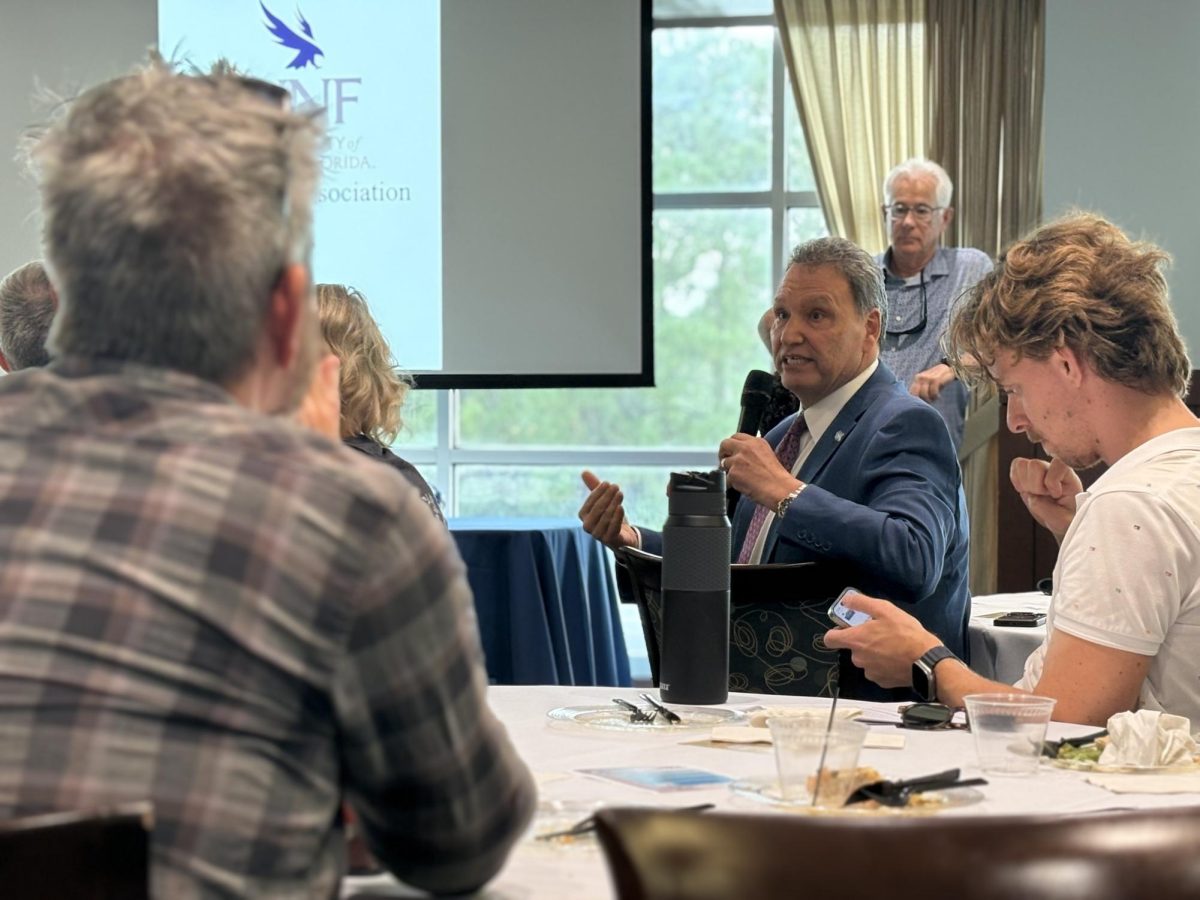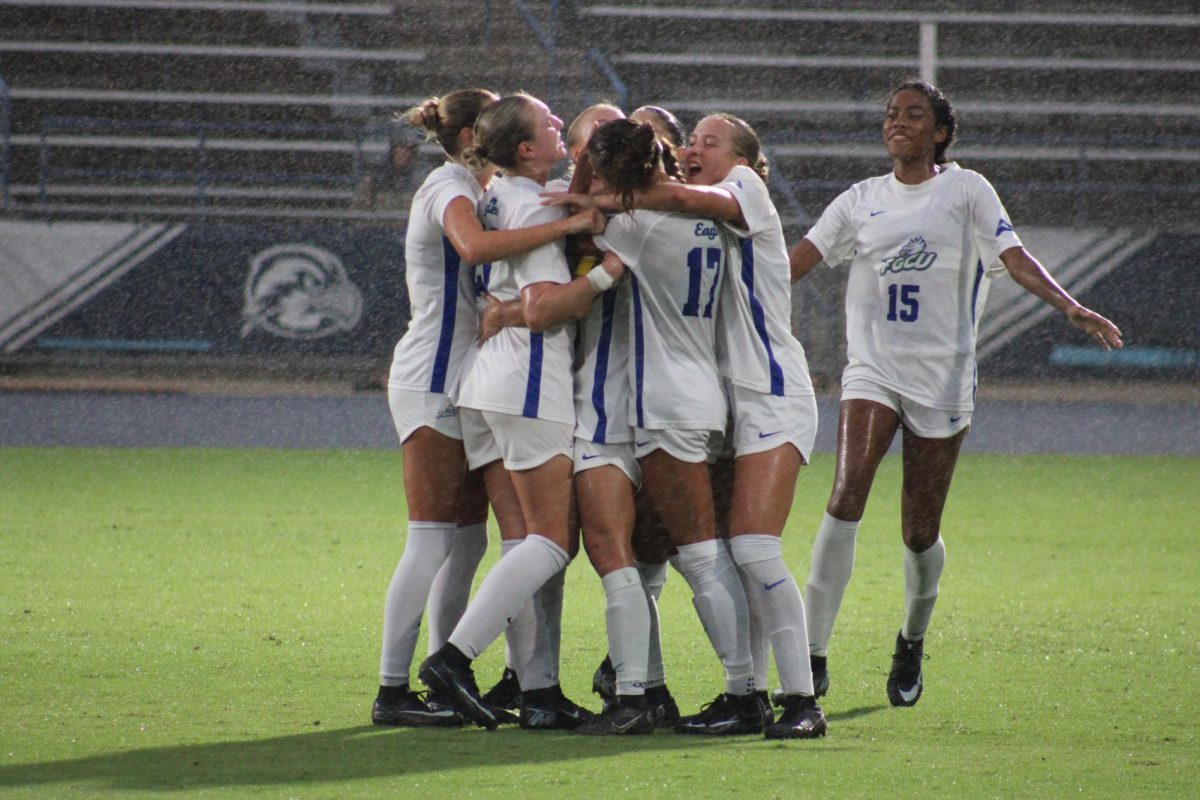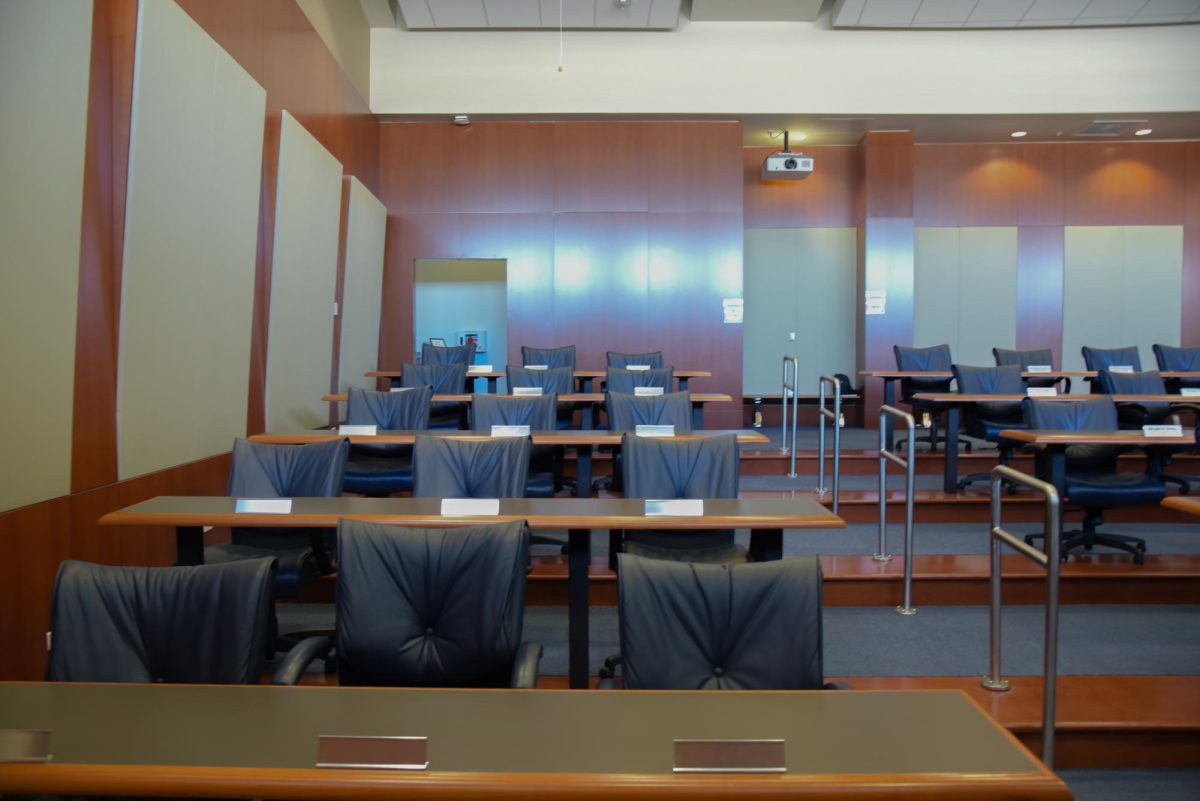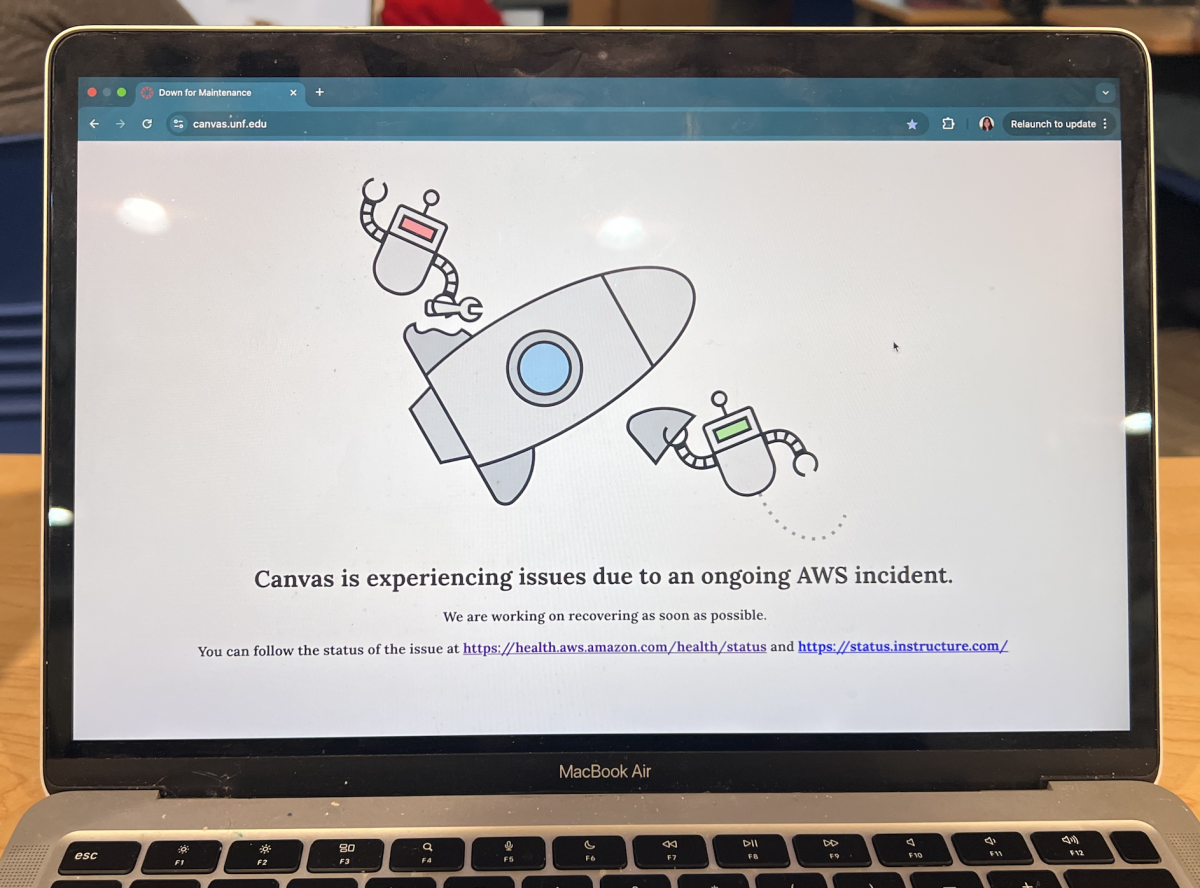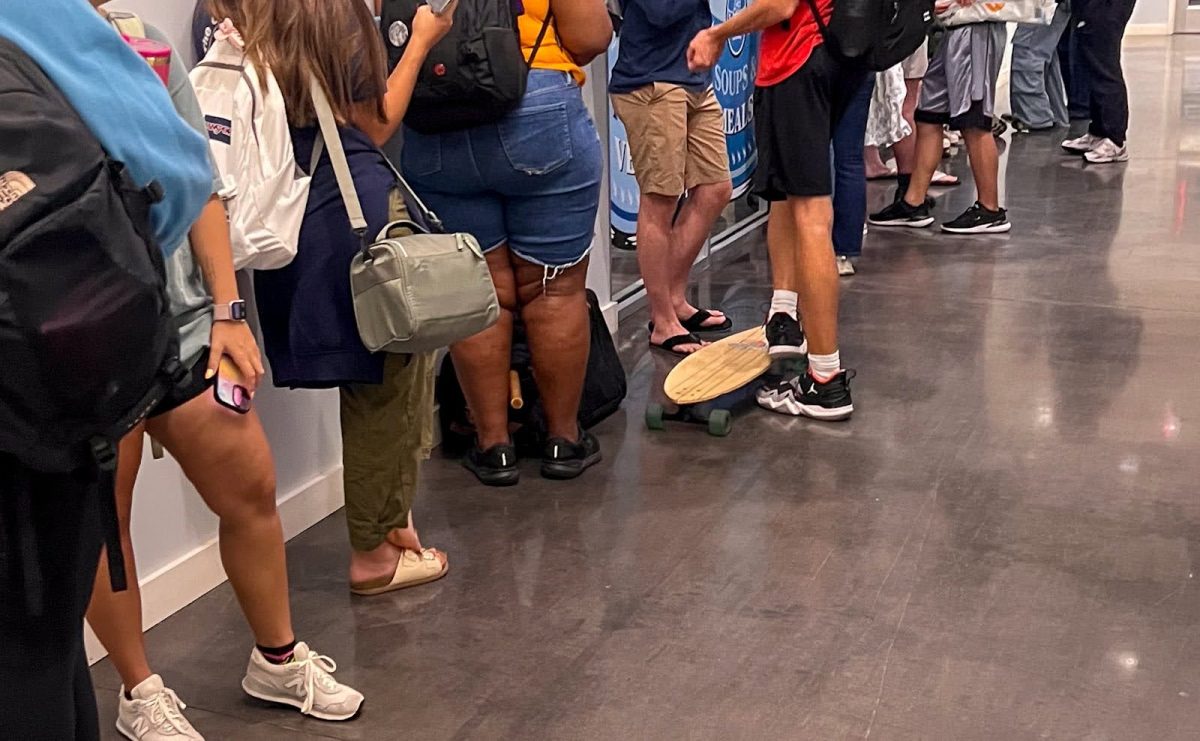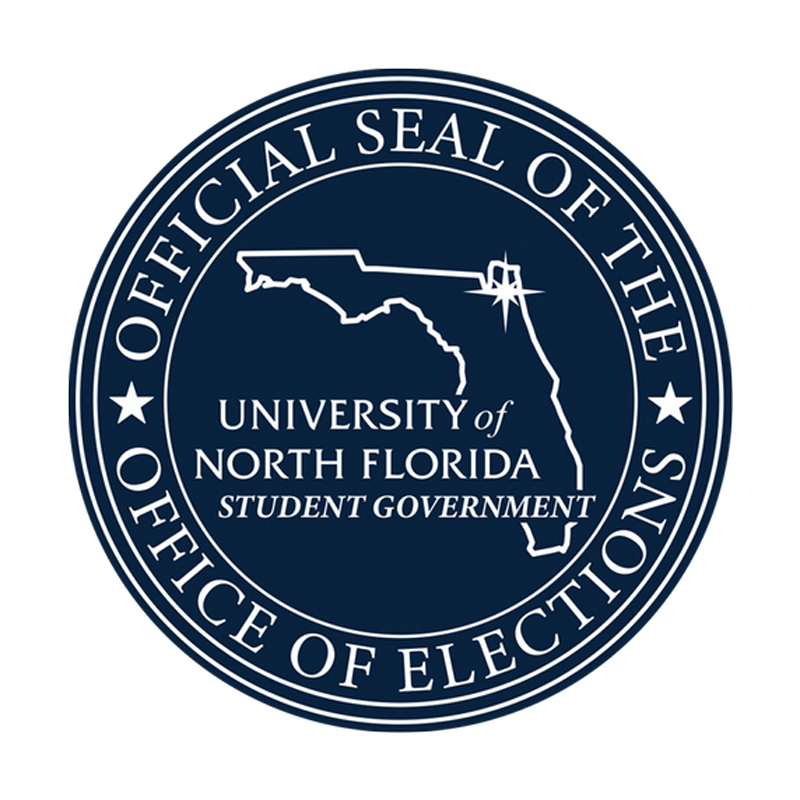‘Reduce, reuse, recycle’ — a simple three-word phrase — has been drilled into Americans’ heads practically since birth, but the widely-known third pillar of sustainability efforts isn’t as simple as it once was.
Sustainability is a hot topic across the country, and the world, as governments hash out what to do with their enormous amounts of waste. In 2018, the U.S. generated 292.4 million tons of solid waste, almost 94 million tons of which were either recycled or composted, according to the Environmental Protection Agency (EPA).
Collecting recyclables is the first step, but what happens after they’re picked up from the infamous blue bin left by the curb? At the University of North Florida (UNF), the answer to the question of “Is recycling happening?” isn’t quite a simple yes or no.
“Unfortunately, the market right now is really just for clean cardboard,” John Hale, UNF’s Associate Vice President of Administration and Finance, said. “So everything else outside of that is unfortunately headed to a landfill.”
The market for recycling, Hale explained, has “restricted opportunities” and adds to an issue stemming far beyond UNF to the U.S. as a whole.
Out of sight, out of mind
For decades, the U.S. (including other North American and European countries) sent their waste to China. That all changed in 2018 when China implemented a new policy called “Operation National Sword,” drastically changing the recycling landscape.
Bringing down the hammer — or the blade in this case — the new policy meant that China would not accept shipments that are mixed with trash, the wrong type of recyclable material or other low-quality recyclables, as explained by the Center for EcoTechnology (CET).
The same year Operation National Sword was launched, China took in less than 1% of its 2016 total, as reported by NPR in 2019, which left (and still leaves) an enormous amount of material with nowhere to go.
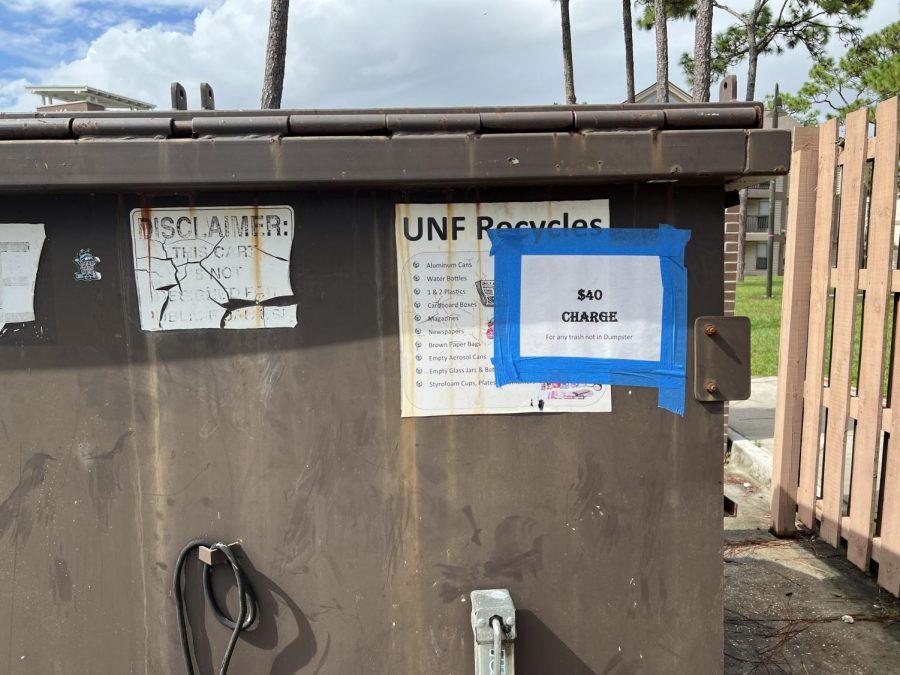
Obviously, recycling is regulated differently from country to country because it is oftentimes managed by the provider but regulated by the government, according to Dr. Nathan Kunz, a University of North Florida (UNF) professor who studied recycling in Europe and specializes in sustainability.
The way this works in Jacksonville, he explained, is that residents are given two bins: one for waste and one for recycling. All the material in the latter will go to a factory to be separated.
“And then, once it’s sorted, it’s being transferred to specific plants where they recycle each type,” Dr. Kunz said. “So, for example, one plant is going to be recycling glass, another one aluminum, another one steel, paper and so on.”
Often marketed as a ‘simple solution,’ there is still a business model behind recycling, Dr. Kunz said.
It takes money to break down materials, regardless of whether they are recyclable or not. Materials that are easy to recycle (such as steel and copper) can be resold at a high value for profit, Dr. Kunz explained. Other forms of waste are much more difficult and expensive to recycle.
“That’s exactly what’s happening now with paper and cardboard,” he said. “Now, because the costs have gone up for the shipping, it’s not worth to do it anymore.”
Recycling is … complicated
Administrators at UNF, like Hale, are faced with a similar dilemma: How can the university responsibly recycle? A campus of more than 17,000 students naturally produces a lot of waste, much of which has the potential to be recycled.
In theory, the recycling process at UNF is broken down into two sections: on-campus and residential.
On-campus recycling involves any material placed in a recycling bin on the campus or in buildings and is overseen by UNF Physical Facilities. Residential refers to any recyclable material generated by students living on campus and is handled by UNF Housing and Residence Life.
UNF Physical Facilities Manager Robert McCraken, who oversees waste and recycling processes on campus, told Spinnaker during the Fall 2021 semester that everything recyclable used to go to compactors, but the university had since moved away from that.
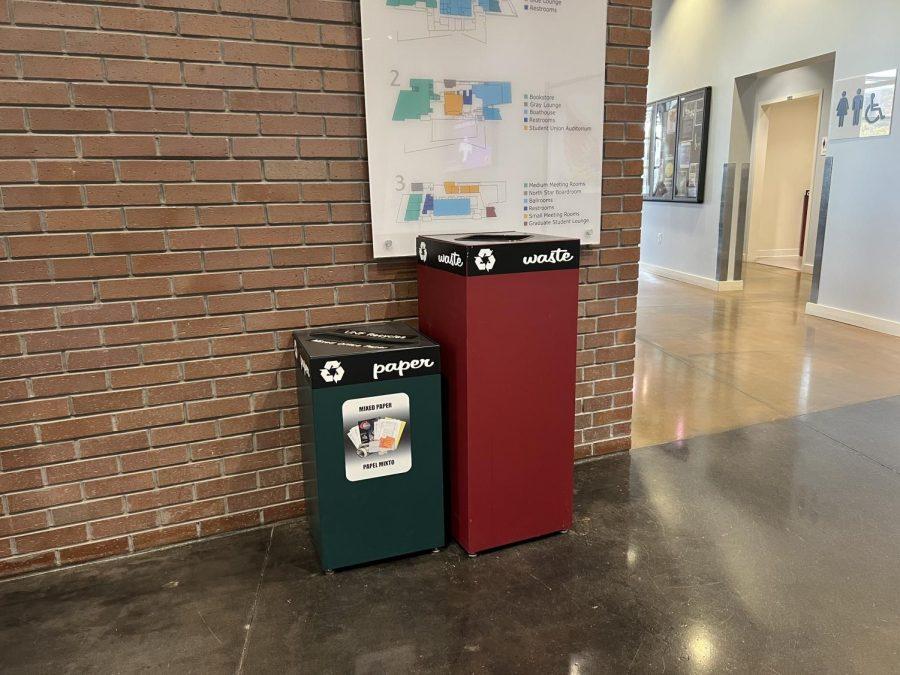
“We are handling recycling a little differently, but that won’t look much different to the campus,” he said in 2021. “The bottles and cans are being thrown away. They don’t want them.”
At the time, the university was in the process of “thinning out” the designated recycling bins from inside campus buildings but left the outside bins to help prevent trash overflow.
Declining to interview again this semester, McCraken wrote in an email that “Nothing has changed” since 2021.
Some materials, such as cardboard, scrap metal, lead acid batteries and pallets, are being recycled by UNF, he wrote. There are other items that the university picks up that may be recycled at some point but are viewed by Physical Facilities as “disposal,” according to McCraken’s written response.
No, that doesn’t mean students can drop off their lead-acid batteries for recycling at UNF. This means that materials (such as those lead-acid batteries) are coming out of UNF’s workshops and being recycled that way. The items listed by McCraken are being recycled on the university’s end.
But what about students?
“My understanding is nothing of the housing areas is currently being recycled,” Hale said. Yet, Housing provides residents with recycling bins in each dorm, according to their website.
Even back when the market was good for plastics and metal cans, Hale said that UNF “had a real problem” with non-recyclables ending up in recycling bins. Once contaminated, basically the entire bin is lost, he said.
Without a partner that can provide a service that UNF would pay for, Housing is simply incapable, Housing Director Bob Boyle explained.
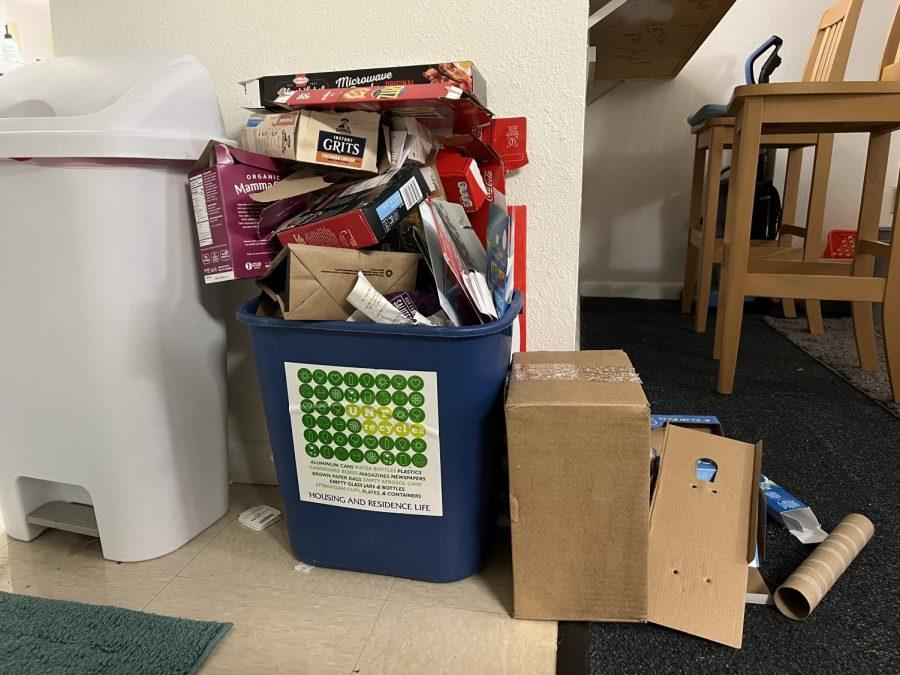
Like the rest of UNF, Housing does recycle “behind the scenes,” Boyle said (by donating to Lend-A-Wing or old furniture to the Salvation Army, for example), but the department doesn’t have the infrastructure, personnel or space to do it with residents.
“[Housing’s] not staffed to actually have people pick through recyclables to sort out, you know, what’s good, what’s not good,” Hale said. “So I just think from his end, it’s not really feasible to go through and pick out cardboard from everything else that may end up in that waste stream.”
Achieving sustainability in other ways
While the idea of recycling is popular and appealing to the masses, the reality is it’s not always financially viable, especially with such an overload of materials to sort through. That’s where the other two pillars of sustainability come in: reduce and reuse.
“I know that students themselves would [recycle],” Lauren Thiem, a second-year UNF marine biology major who helped run a recycling program with the Honors Student Union (HSU) last year, said.
“Of course, it’s not the end-all-be-all option. It’s not perfect,” she said. “There needs to be more than just recycling, but recycling is just one more thing you can do.”
As of publishing, UNF has not released any official communication to students about what they can and cannot recycle.
“I think we want to encourage good behaviors to continue as much as we can,” Hale said. “I do see the irony in that, you know, we have these containers out there, at the end of the day, they’re not going to be recycled, but I’d rather leave them in place so that in the event market conditions do change.”
The market for recycling is fluid and could change, Hale explained.
“I’d love to be able to say to residents, ‘throw all your recycling in this dumpster regardless of what it is,’ and that we’d get it to a compactor,” Boyle said. “It’s not a solution that exists right now, unfortunately.”
___
For more information or news tips, or if you see an error in this story or have any compliments or concerns, contact editor@unfspinnaker.com.





